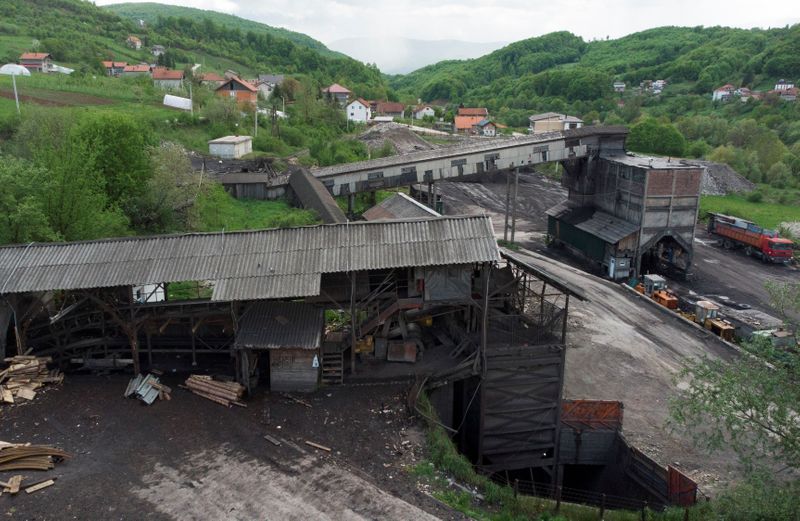By Daria Sito-Sucic
BILA valley, Bosnia (Reuters) - Fourth-generation miner Adis Genga says he and his co-workers would join a general strike at Bosnian coal mines if miners are forced to leave their jobs under unfavourable conditions, knowing their days of staging industrial action are numbered.
Within a decade, Genga, 37, and other workers from the Abid Lolic mine, located in central Bosnia, will not have a job.
"We shall fight with full force to prevent lay-offs and severance packages, our brothers and cousins have become invalids doing their jobs and can do nothing with severance payments," Genga said.
As Bosnia prepares to switch gradually from coal to renewable energy sources, the miners, once a trademark of the ex-Yugoslav republic rich in coal with one of them featuring on the national currency banknote, face uncertain future.
Bosnia and its other Western Balkan neighbours who all want to join the European Union have pledged to reduce CO2 emissions and close coal mines and coal-fired plants by 2050 as the rest of Europe.
In line with that plan, Elektroprivreda BiH (EPBiH) power utility, owned by the government of Bosnia's autonomous Bosniak-Croat Federation, plans to restructure its seven indebted coal mines and cut the number of employees to 5,200 from the current 7,200 over the next three years.
Miners' trade unions have announced a general strike and subsequent protests unless their requests for socially-sensitive restructuring have been respected.
The government and EPBiH say that most of the redundant workforce are administrative workers who will be offered pre-qualifications. Some will be transferred to EPBiH's new companies and others offered severance payments, with all due benefits paid.
EPBiH General Manager Admir Andelija said the company has allocated 125 million Bosnian marka ($77.6 million) for covering outstanding debt of the mines to pension funds to enable retiring of 419 employees this year.
FACING FINANCIAL COLLAPSE?
Even though the government says that no miner will lose their job in the process, thousands of families traditionally employed in the mining industry fear they will remain jobless as the country has yet to develop alternative job schemes.
The Abid Lolic mine, which is a key lifeline for 15,000 inhabitants of the Bila valley, will be among the first to close down in 10 years time over its dwindling coal reserves and an outdated room-and-pillar mining system which limits its output and modernisation, Andelija said.
"The closure would mean the total financial collapse of the valley, which is completely dependent on this mine," said Adis Kasumovic, the mine's director.
Genga, whose father, grandfather and great-grandfather have all worked in the mine, said he would not allow his son to continue the family tradition: "These are insecure times."
Federation Energy Minister Nermin Dzindic said the priority was to secure energy supplies in a sustainable way, warning that otherwise the mines will face bankruptcy over their 920 million marka debt to state funds, suppliers and EPBiH.

"The transition must be completed sooner or later, better sooner because it hurts less," Dzindic said.
(1$ = 1.611 Bosnian marka)